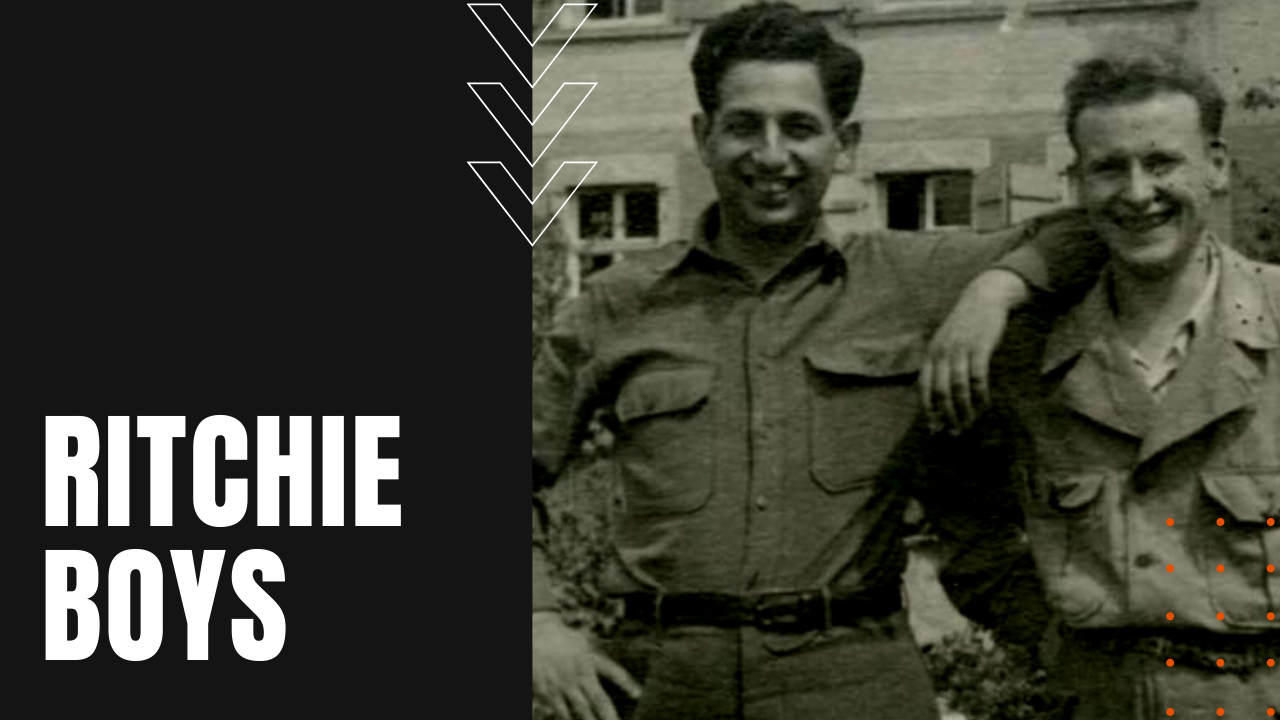Ritchie Boys of World War Two

Trained for U.S. Army Intelligence at the secret Camp Ritchie facility in Maryland, Ritchie Boys, as they became known, consisted of some 15,200 servicemen who had fled Germany and Austria when Adolph Hitler and the Nazis came to power in pre-war Germany.
What Percentage of Ritchie Boys were Jewish?
2,200 Ritchie Boys or 14.4% were Jewish refugees who fled anti-Semitic persecution in Germany, while all the Ritchie boys were specifically selected for front-line intelligence gathering due to their fluency in German, French, Polish and Italian, not to mention their innate understanding of German mentality and behavior.
Trained in methods of intelligence, counterintelligence, prisoner interrogation and psychological warfare, the Ritchie Boy’s role in the war effort became an increasingly vital weapon to the Allies eventual victory over Germany, working at strategic corps and army levels, analyzing German troop buildups and plans, while studying ways to demoralize the enemy.
Many entered Europe with D-Day invasion forces at five Normandy beachheads, feeding the Allies with an enormous amount of valuable information against their common enemy, including advance warning of the German Bulge offensive in the Ardennes Forest of France.
The Ritchie Boys were also instrumental in softening German resistance by demoralizing them in both open and covert operations, while interrogating prisoners and defectors for information regarding German strength levels and troop movements, as well as assessing the physical and psychological state of the German army.
Using targeted disinformation campaigns in German-language newspapers, flyers and radio broadcasts, the Ritchie Boys further worked to quell German resistance to invading Allied forces, and while such tactics often proved hard to quantify, in a declassified post-war report by the U.S. Army, the Ritchie Boys were credited with contributing 60 percent of all credible intelligence gathered in the European Theater of War, making the Ritchie Boys a vital asset in the Allies’ eventual victory over Nazi aggression.
